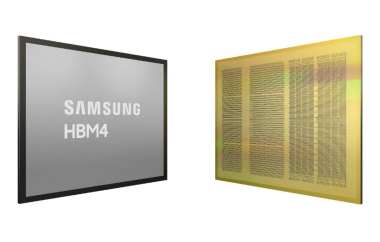
Samsung Electronics made headlines at the 2025 Semiconductor Exhibition (SEDEX) by unveiling its next-generation HBM4 memory, marking the company's first public showcase of the advanced chip and signaling readiness for mass production by the end of this year.
According to reports, Samsung aims to secure a stronger edge over SK Hynix through large-scale production of HBM4 built on advanced 1c DRAM technology. Citing DigiTimes, Samsung's HBM4 logic chip has already achieved an impressive 90% yield rate, suggesting smooth progress toward full-scale manufacturing with no expected delays.
Previously, Samsung lagged behind SK Hynix and Micron in product quality and NVIDIA certification speed, leaving the HBM market dominated by SK Hynix. The debut of HBM4 is now seen as Samsung's critical comeback move—a push to reclaim leadership through faster production cycles and more mature memory stacking technology.
Industry watchers believe HBM4 will serve as the core memory foundation for next-generation AI processors and hyperscale data centers. If Samsung maintains its lead in yield and stability, it could stand shoulder to shoulder with SK Hynix in the era of generative AI.
Samsung revealed that HBM4 features 12-layer stacking with data transfer speeds reaching 11 Gbps. The company also confirmed plans to accelerate development of its next-gen HBM4E memory, targeting speeds of up to 13 Gbps, which is more than 2.5 times faster than HBM3E and twice as power efficient. Mass production of HBM4E is expected by 2027, aligning with NVIDIA's future demand for high-bandwidth memory in AI and GPU architectures.
As AI models grow larger and high-performance computing (HPC) workloads demand greater bandwidth, the timing of HBM4's rollout will directly influence the supply chain strategies of major AI chipmakers like NVIDIA and AMD. Analysts note that if Samsung meets its year-end production target, it could reclaim a leading position in the AI memory market by 2025, reshaping the competitive landscape long dominated by SK Hynix.
Interestingly, SK Hynix also showcased its own HBM4 module co-developed with TSMC during the event. Built using mature 1b DRAM process and MR-MUF packaging, SK Hynix's version has reportedly achieved a yield rate above 70%, reaching profitable mass production thresholds.




